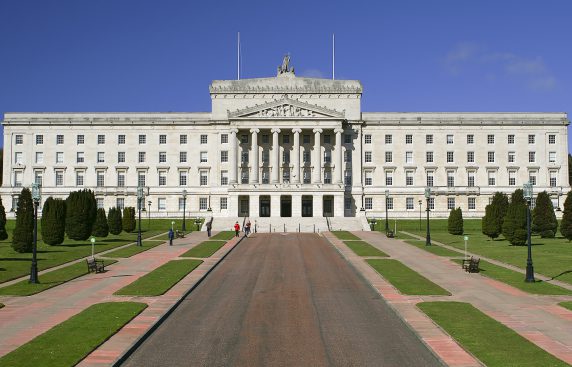GP contract negotiations will be ‘one of the very early tasks’ of a new Northern Ireland health minister, according to the BMA’s GP Committee.
The union has called for ‘immediate’ funding for the health service as the country prepares for its government to return.
On Tuesday, the Democratic Unionist Party (DUP) announced that it had reached an agreement with the UK Government on post-Brexit trade rules.
This followed two years of a political void in Northern Ireland, during which there were no ministers or Executive, and civil servants were only able to make decisions in line with previous policy.
Now, the power-sharing government at Stormont is likely to be restored shortly, as the DUP’s boycott over trade ends.
DUP leader Jeffrey Donaldson said on Wednesday it is a ‘good day for Northern Ireland’ and there is now a ‘stable and sustainable basis to restore our political institutions at Stormont’.
GP Committee NI chair Dr Alan Stout told Pulse that the news is a ‘good thing’ but there are ‘massive challenges’ facing the incoming Executive because of the ‘difficult’ position the country is in.
‘But realistically the only way we’ll get through it is by working together. We need the political lead, we need that public accountability, that’s the only way we’ll be able to move to a better place with it,’ he added.
Dr Stout said the GPC has been in negotiations with the Department of Health for the 2024/24 GP contract, and that this could be a ‘very difficult early decision’ for the new health minister.
‘That’s going to be one of the very early tasks of a minister – how we resolve a lot of the contract issues and the funding issues in general practice.’
He also said solving the indemnity issue for GPs would be an ‘easy win’ because it shows the Executive ‘actually understand that there’s a problem there’.
GPs in Northern Ireland are not supported by a state-backed indemnity scheme, as in England and Wales, which means they have to pay large sums each year to cover themselves. Resolving this is a key ask for the BMA in contract negotiations.
Dr Stout said: ‘If an incoming minister can solve the indemnity issue for GPs Northern Ireland, they will almost instantaneously create a legacy, immediately when they come into office, because it is such a big issue.’
BMA council chair Professor Philip Banfield said the news of an imminent NI Executive is ‘welcome’ but highlighted the issues the health service has faced during this time, including waiting lists rising ‘well in excess of those in the rest of the UK’.
He said: ‘The incoming health minister and Executive will need immediate and recurring funding to deliver services and begin a robust process of planning and transforming health in Northern Ireland.
‘There have been numerous reports and analyses done of the issues; the coming weeks and months must see the new minister, supported by their Executive colleagues, take the decisions needed to finally implement these plans and address the longstanding neglect the health service in Northern Ireland has faced.’
Professor Banfield also emphasised the need to address ‘pay erosion’ to ensure the country ‘is a place where doctors want to work’.
‘Doctors in Northern Ireland are currently paid less than those working in the rest of the UK or Ireland and the junior doctors in Northern Ireland are currently balloting for industrial action because of their sheer frustration and anger at how far behind their counterparts they are falling, and the need to reverse many years of pay erosion,’ he said.
In November, Northern Ireland’s GP Committee said it will ‘fully explore’ whether industrial action is an option for GP partners, following a vote at the country’s LMC conference.
Dr Stout told LMC members at the time that general practice is in the most difficult position it has ever faced, and that the lack of political and local accountability is ‘utterly disgraceful’.
In an exclusive interview with Pulse, Dr Stout said GPs across the country could walk away from their NHS contract and come up with an ‘alternative option’ if the problems facing the profession are not solved.
At the start of this year, the BMA NI chair Dr Tom Black opened the country’s first ‘hybrid’ GP practice, which accepts private patients, in a bid to stay afloat.
He told Pulse that the practice had ‘zero choice at all in the matter’ and that he would not allow ‘Stormont incompetence’ to cause his 100-year-old practice to close.

















